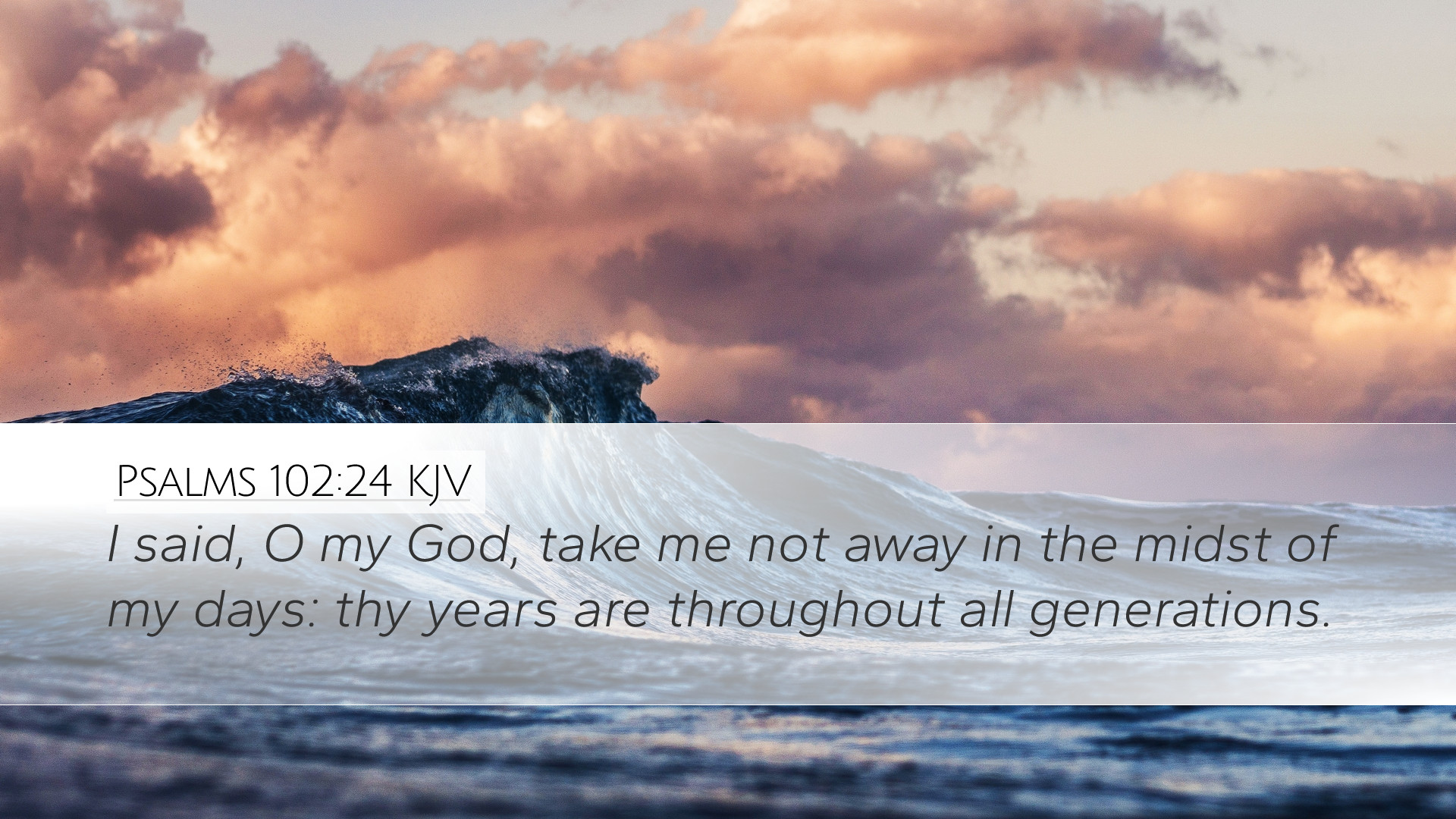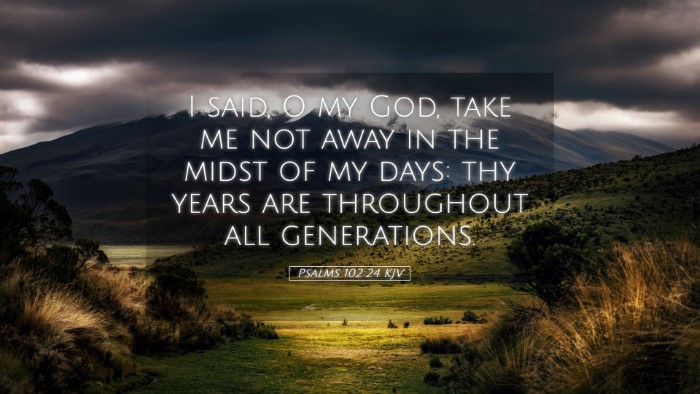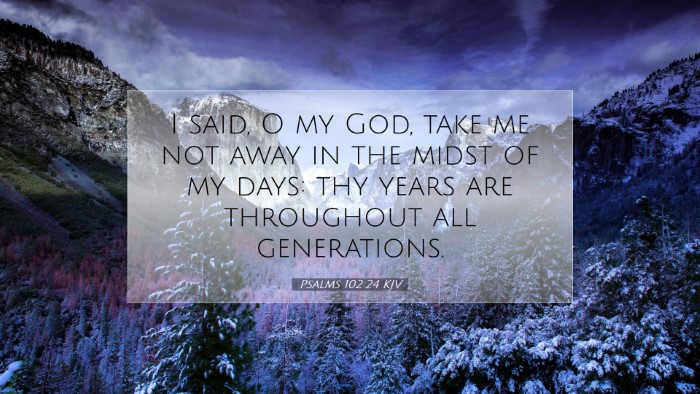Psalms 102:24 - A Commentary
“I said, O my God, take me not away in the midst of my days: thy years are throughout all generations.”
Introduction
Psalms 102 is a poignant supplication of an afflicted soul, expressing deep sorrow and despair, yet it bears a remarkable witness to God's eternal nature and faithfulness. In particular, verse 24 stands out as a heartfelt plea to God. This commentary synthesizes insights from various public domain sources, providing a comprehensive understanding of this verse's significance.
Verse Analysis
Psalms 102:24 can be seen as a prayer, a moment where the psalmist openly communicates his vulnerability and dependency on God. The verse is part of a broader context of lamentation, emphasizing both human frailty and God's eternal character.
1. The Cry for Preservation
The psalmist's opening cry, "take me not away in the midst of my days," illustrates a deep fear of untimely death. According to Matthew Henry, this is a reflection of the sentiment that life, with all its struggles, still presents opportunities for service and glorifying God. The psalmist's lament suggests he senses a divine purpose yet unfulfilled in his life. He desires to continue serving God and his people, recognizing the brevity and preciousness of life.
2. The Character of God
When the psalmist addresses God as “my God,” it signifies a personal relationship and covenant faithfulness. The phrase “thy years are throughout all generations” emphasizes God's eternal nature, contrasting human transience with divine permanence. Albert Barnes points out that while humans are temporary, God exists outside of time, embodying a stability that reassures the believer in turmoil.
3. The Theological Implications
- Human Fragility: The psalm exemplifies the reality that all humans are subject to suffering and existential fears. Adam Clarke emphasizes that there is an acknowledgment of human limits and mortality, positioning our inflated sense of security as folly.
- Divine Sovereignty: God's timeless existence assures the believer that their sufferings are seen and understood. The psalmist's plea recognizes God’s supreme authority over life and death.
- Hope and Despair: Within the context of lament, the verses surrounding this appeal convey a transformative tension. The poet's cries move from despair to hope, affirming God's unchanging nature as the source of strength for the beleaguered.
Spiritual Application
This verse encourages believers to express their fears and insecurities boldly before God, knowing that He listens. The psalmist models an honest dialogue, teaching that lament is an essential aspect of faith. Matthew Henry articulates that there is no shame in bringing our struggles to God, for doing so facilitates a deeper trust in His eternal plan.
1. The Practice of Lament
Lamentation embraces our struggles, allowing for transparency in our relationship with God. Believers are encouraged to share their pain while simultaneously acknowledging God's sovereignty and eternal nature.
2. Understanding Life's Purpose
The cry for preservation implies a recognition of life's purpose as being rooted in God’s will. For pastors and theologians, this verse serves as a reminder that ministry is a lifelong journey that honors God's timeline over personal aspirations. Albert Barnes states that understanding our temporal existence should motivate Christians to live purposefully in every moment.
3. Assurance of God’s Presence
The assurance of God's eternal nature should bring comfort to the afflicted. In times of trial, believers may find peace in the knowledge that while their circumstances may change drastically, God remains unchanged and is present in their suffering. Adam Clarke reflects on the psalmist's recognition of God’s enduring character and how it serves to anchor faith amidst turmoil.
Conclusion
Psalms 102:24 encapsulates the essence of a believer's strife intertwined with faith. It illustrates the timeless human struggle against mortality and suffering, while simultaneously leaning into the everlasting arms of a sovereign God. In this dialogue, both the frailty of man and the robust sovereignty of God are brought to light, offering those who navigate life's challenges not only a model of lament but also profound hope.
This commentary serves as a tool for pastors, students, and theologians, encouraging a deeper exploration of the human experience in relation to divine eternity. The heartfelt expression found in Psalms 102:24 transcends time, bridging the psalmist's anguish with the believer's prayer, cultivating a richer understanding of God's enduring nature and presence.


